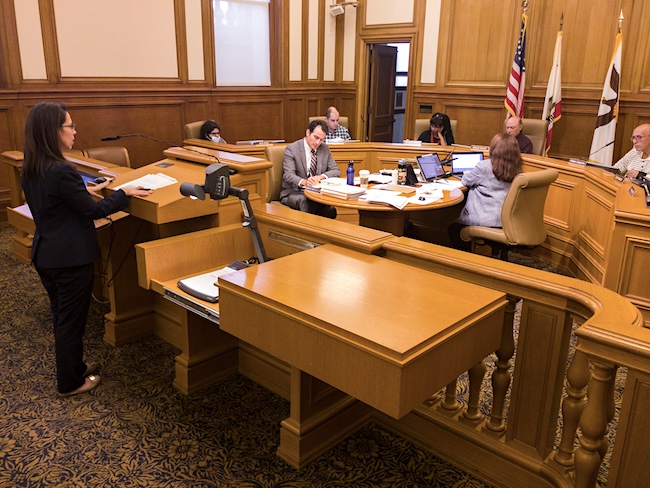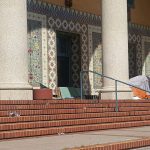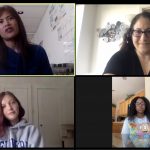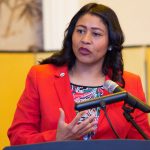One of the key panels maintaining local government accountability will soon get back to work after being sidelined for months if the head of the Board of Supervisors gets his way.
The Sunshine Ordinance Task Force has not met since Mayor London Breed suspended most public meetings in mid-March, when the city issued a shelter-in-place order to address the spread of the coronavirus. Board of Supervisors President Norman Yee plans to propose allowing the group to resume business in coming weeks, at which point it could examine whether other agencies have been overstepping as they carried out Breed’s emergency proclamation and later orders.
The task force weighs in on complaints about government’s adherence to the city’s Sunshine Ordinance, a set of voter-approved transparency laws. If the task force does not meet, the public cannot know if City Hall is following the rules, said Bruce Wolfe, the task force’s chair.
“It’s kind of like, you have a bunch of traffic laws,” Wolfe said. “People are supposed to stop at a traffic light, full stop. But then you suspend the ability of the police department to be able to monitor that.”
One of the first items on the group’s agenda: reviewing Breed’s orders limiting the public’s ability to monitor city government actions and decisions and determining how well the City Attorney has interpreted them for other departments to follow, Wolfe said.
Breed’s orders have cut back transparency laws in ways that will last the duration of the coronavirus emergency. She suspended sections of the city’s administrative code that require departments to respond within 24 hours to certain narrow requests for public records. She later extended those suspensions to include all public records requests, so that agencies no longer had to provide documents within 10 days.
Breed also discontinued meetings for most public bodies, including the task force. For the few bodies that continued meeting, Breed allowed them to suspend many practices such as posting agendas publicly, televising meetings and giving public attendees equal time for comment.
These moves drew criticism from a group that included the Northern California Chapter of the Society of Professional Journalists, the First Amendment Coalition and the Pacific Media Workers Guild, among others.
“Mayor Breed’s decision to limit the free flow of information contrary to an ordinance enacted by San Francisco voters erodes government transparency and public trust at a time when both are critical,” the group said in an April letter, referring to the Sunshine Ordinance.
“Elected leaders and public officials should not use the COVID-19 crisis as an excuse to stop following laws they simply do not like,” the letter continued.
(Full disclosure: Lila LaHood, the Public Press’ publisher, is a member of the Sunshine Ordinance Task Force. LaHood and Managing Editor Liz Enochs both serve on the Northern California Society of Professional Journalists board.)
Yee intends to propose the task force’s resumption to the full Board of Supervisors, said Jen Low, his legislative aide. A majority vote would enable the task force to meet by the second week of June, Low said, though the Mayor’s Office could authorize the panel to meet sooner.
“Given the emergency, there have been a lot of questions around what the public is able to count on in terms of transparency,” Low said. “Their ability to meet is important.”










